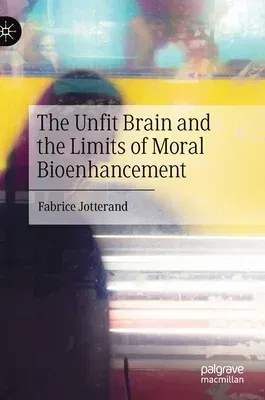1 Introduction.1.1 Biology Is Not Destiny.1.2 Overview of the Book.2 The
Scope and Limits of Moral Bioenhancement.2.1 Conceptual Issues and
Scientific Realities.2.2 Becoming Fit for the Future.3 Moral
Bioenhancement and the Clinical Ideal.3.1 The Challenge of Defining
Enhancement.3.2 The Clinical Ideal and Enhancement.3.3 Clinical Ideal
and Psychiatric Disorders with Moral Pathologies.4 Neurobiology,
Morality, and Agency.4.1 The Neurobiology of Morality.4.2 Moral
Judgments and the Moral Self.4.3 Phronesis and the Virtues.4.4 The
Autonomous Modern Self.4.5 The Pathologizing of Human Behavior.5
Techno-Science, Politics, and the Common Good.5.1 Post-academic
Science.5.2 The Implications of Postmodernity for Science and
Technology.5.3 Beyond the Postmodern Cacophony: Deliberative
Democracy.5.4 Applying the Deliberative Democracy Paradigm.6
Neurotechnologies and Psychopathy.6.1 Psychiatry and Moral
Bioenhancement.6.2 Psychopathy.6.3 The Diagnosis of Psychopathy.6.4
Treatment of Psychopathy.6.5 Feasibility, Usefulness, and Limitations of
Neurotechnologies.7 Punishment, Responsibility, and Brain
Interventions.7.1 Retribution Versus Rehabilitation.7.2 Dangerousness
and Prevention.7.3 Capacity and Responsibility.7.4 Moral and Legal
Responsibility.8 Identity Integrity in Psychiatry.8.1 Technology and
the Current Anthropological Identity Crisis.8.2 Homo Sapiens
Interacting with Machines.8.3 Identity Integrity.9 Epilogue: Final
Thoughts for the Path to Future Philosophical Explorations.

